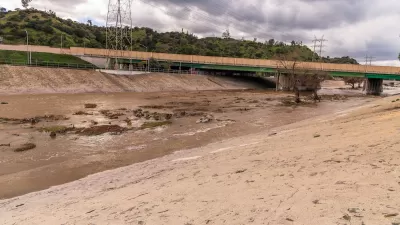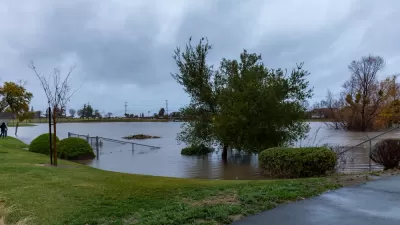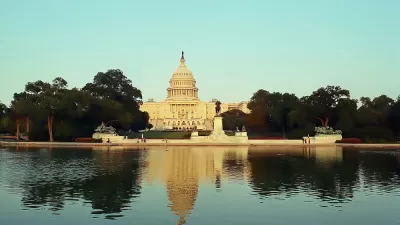The Net Zero Water Toolkit helps individuals and organizations make water resource planning decisions based on local conditions rather than targeting historical demand and allowing water quality impacts to flow downstream.
Building off the principles of net zero energy and climate neutrality, Net Zero Water (NZW) is concept that aims to change the way water resources are managed by making water resource planning decisions based on local conditions. Rather than going out and securing water supplies to meet historical demand patterns, a net zero water approach looks at local precipitation patterns and tries to maintain consumption at or below that available local supply. And, rather than allowing water quality impacts from stormwater runoff in developed areas to flow downstream, a net zero water approach looks to treat runoff on-site. NZW, or being water neutral, means using only as much water as falls on your site and eliminating all water quality impacts from the site.
To pilot the concept of NZW, Brendle Group (a sustainability engineering and planning firm) led the development of a building-scale NZW Planning Toolkit that walks users through the process of understanding their water footprint and taking action to reduce consumption and improve water quality whether they are a building owner, company, school campus, or community.
To launch this groundbreaking initiative, a user-friendly Microsoft Excel®-based analysis tool and companion guidebook (NZW Planning Toolkit) have been developed with the help of a project team, sponsors, and a technical advisory group. The NZW Planning Toolkit is designed to help users quantify their water footprint, evaluate reduction strategies, and recognize financial and environmental benefits from reducing their water use and water quality impacts. It is anticipated to be used widely across the public and private sectors and is intended to standardize and simplify water analysis and planning, while maximizing economic returns and environmental benefits.
The building-scale Toolkit is currently available for free download. Subsequent phases will focus on modules for the building portfolio, campus, district/neighborhood, and community scales.
FULL STORY: New Zero Water

Florida Considers Legalizing ADUs
Current state law allows — but doesn’t require — cities to permit accessory dwelling units in single-family residential neighborhoods.

Manufactured Crisis: Losing the Nation’s Largest Source of Unsubsidized Affordable Housing
Manufactured housing communities have long been an affordable housing option for millions of people living in the U.S., but that affordability is disappearing rapidly. How did we get here?

Research Shows More Roads = More Driving
A national study shows, once again, that increasing road supply induces additional vehicle travel, particularly over the long run.

EV Chargers Now Outnumber Gas Pumps by Nearly 50% in California
Fast chargers still lag behind amidst rapid growth.

Affordable Housing Renovations Halt Mid-Air Amidst DOGE Clawbacks
HUD may rescind over a billion dollars earmarked for green building upgrades.

Has Anyone at USDOT Read Donald Shoup?
USDOT employees, who are required to go back to the office, will receive free parking at the agency’s D.C. offices — flying in the face of a growing research body that calls for pricing parking at its real value.
Urban Design for Planners 1: Software Tools
This six-course series explores essential urban design concepts using open source software and equips planners with the tools they need to participate fully in the urban design process.
Planning for Universal Design
Learn the tools for implementing Universal Design in planning regulations.
City of Moreno Valley
Institute for Housing and Urban Development Studies (IHS)
City of Grandview
Harvard GSD Executive Education
City of Piedmont, CA
NYU Wagner Graduate School of Public Service
City of Cambridge, Maryland






























